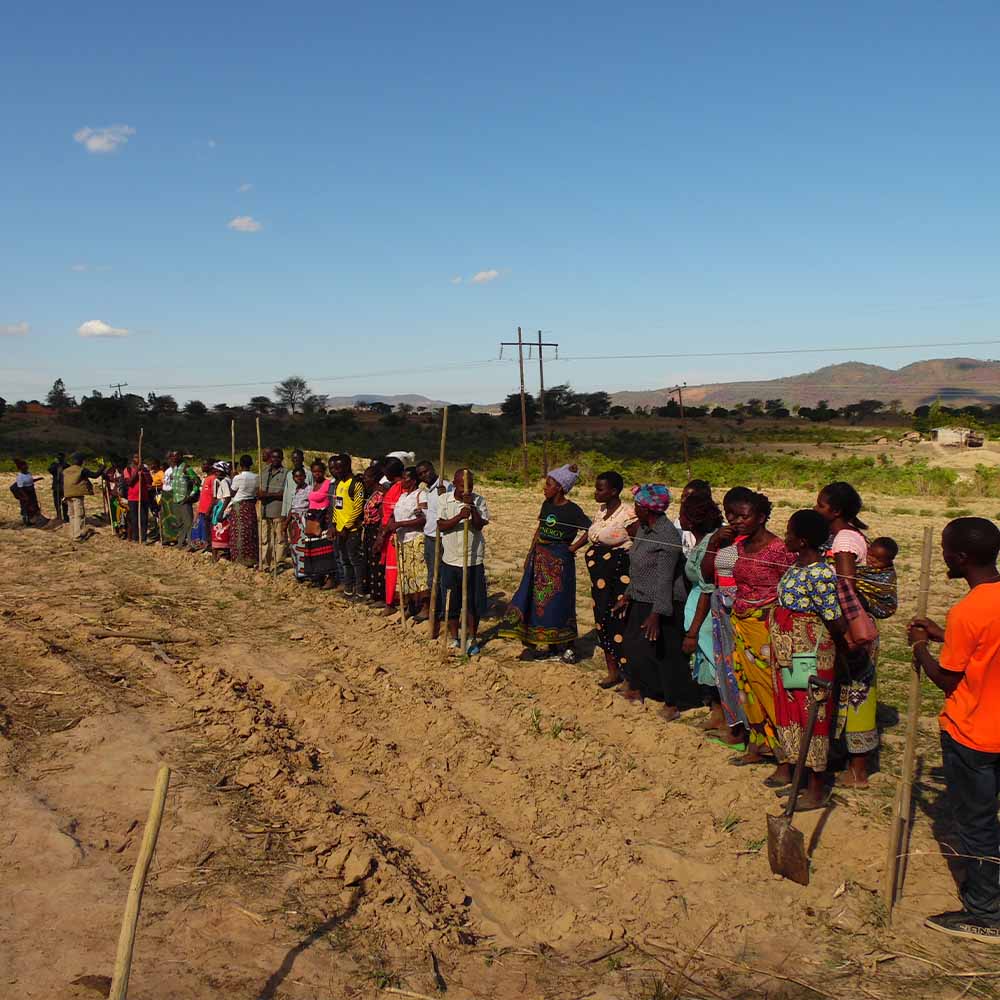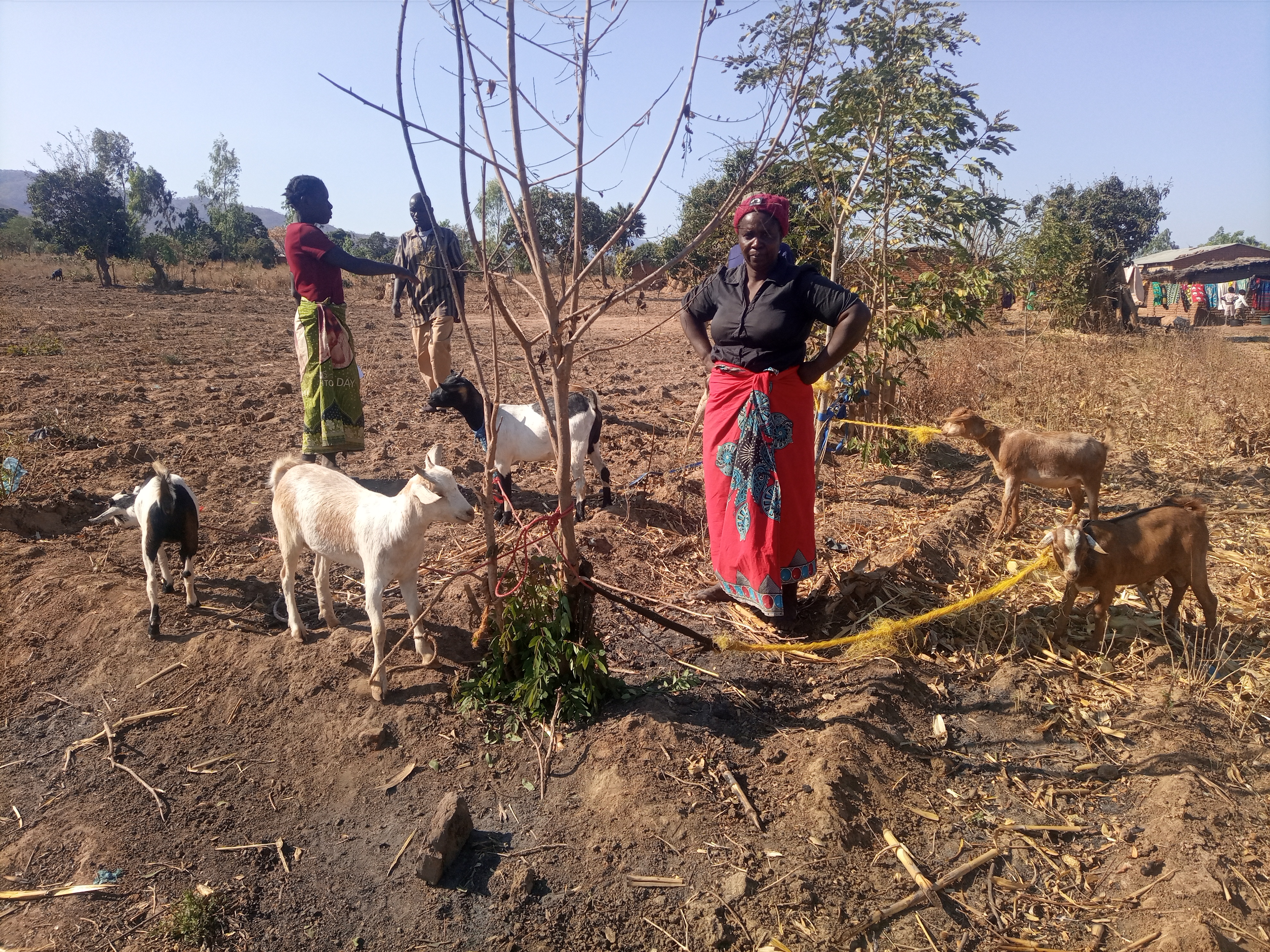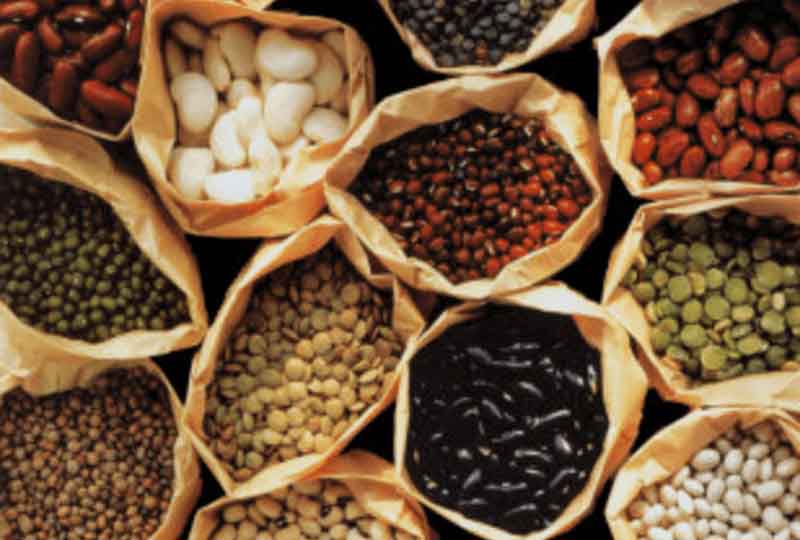Strengthening the conservation and sustainable use and management of selected climate resilient PGRFA to enhance smallholder farmer livelihoods Project”
Project Period: 2024-2027
Project Target: 7,000 Smallholder Farmers
Project Catchment Area: Rumphi (in Bolero and Mhuju EPA) and Mzimba (Mpherembe EPA) District
Strengthening the conservation and sustainable use and management of selected climate resilient PGRFA to enhance smallholder farmer livelihoods is the project being funded by the Food and Agriculture Organization of the United Nations (FAO) through the Benefit Sharing Fund (BSF-5). The main objective of this project is to promote the growing of crops resilient to climate change induced droughts, which contribute to improved food, nutrition, and income security for smallholder farmers. The project is being implemented in Rumphi and Mzimba districts and is expected to reach out to 7,000 smallholder farmers, with at least 60% being women, 25 percent being youth, and 5% being people living with disabilities. The direct beneficiaries of the project are members of Farmer Field Schools (FFS) and are also expected to attend seed and food fairs, and training workshops on sustainable agriculture and Farmers' Rights. The project outcomes and outputs are:

Seed and Knowledge Initiative (SKI) Phase III Project
Project Period: 2023-2027Project Target: 3000 Smallholder farmers
Project catchment Area: Mzimba District (Mpherembe EPA)
Phase three of the SKI project is being implemented in Mzimba district in Mpherembe Extension Planning Area (EPA), targeting 3000 smallholder farmers, and these include women, youth, and people living with HIV and AIDS. The overall objective of the project is that by 2027, farming communities have improved food sovereignty through resilient farmer-led seed systems and more biodiverse and multifunctional landscapes. In this phase, BCI continues to train farmers in agroecology and permaculture, focusing on the integration of local ecological knowledge and scientific knowledge. The integration of local ecological knowledge with scientific knowledge is believed to be crucial in building resilient and sustainable farming systems. Smallholder farmers have enormous local ecological knowledge that they use to adapt their farming practices to biotic and abiotic stresses while improving their agroecosystems, especially soils that are highly degraded. This project's outcomes and outputs are:

Scaling up Climate adapted agriculture in Malawi and Mozambique (MAMO II) Project
Project Period: 2021-2025
Project Target: 9000 Agriculture dependent Households
Project catchment Area: Rumphi District in Katowo and Mwazisi EPAs, and Mzimba District in Kazomba and Vibangalala EPAs
The Scaling Up Climate-Adapted Agriculture in Malawi and Mozambique (MAMO II) project is being implemented in Mzimba and Rumphi districts. The overall objective of the project is to increase the resilience and wellbeing of rural communities in selected districts of Malawi and Mozambique. This project is being implemented with support from the Norwegian Agency for Development Cooperation (NORAD), through the Development Fund of Norway (DF). The project has the following outputs;

The HarnessFarms Project
Harnessing agroecological food systems to enhance nutrition, income, market access, and food security among smallholder
farmers in northern Malawi (HarnessFarms) is a project that is being implemented in Katowo EPA, in Rumphi district.
The project is being implemented with funding from Biovision Foundation, through “The Northern Agroecology Collaborative (NAC)”.
The NAC is a consortium of three Malawian organizations: Soils, Food, and Healthy Communities (SFHC), Slow Food Malawi (SFM),
and Biodiversity Conservation Initiative (BCI).
The overall goal of this project is to advance a sustainable, resilient, and equitable food system transformation in Malawi by
building local and regional agroecological markets that, in the long term, will aim to improve the food security and incomes of
small-scale producers, support gender-sensitive small and medium food enterprise development, and increase local consumers’ access
to diverse, healthy foods while sustaining a healthy agro-ecosystem.
The project focuses on three topics:
(1) Improve dietary diversity: use participatory education to raise nutritional awareness,
(2) Support gender equity: use participatory methods to address gender inequity and promote women empowerment and
(3) Develop
fair and reliable markets: work with smallholder farmers to improve food production through agroecological methods and finding
viable markers. The project’s outcomes and outputs are:






